Here's how Milwaukee's mayoral candidates would approach public safety, including reckless driving and record homicides
Public safety is at the top of Milwaukee residents' minds, and the race for the city's next mayor is no exception.
Among the top concerns are two years of record-high homicides and reckless driving that renders the streets unsafe for drivers, bicyclists and pedestrians.
But there's also the larger conversation around how "public safety" should be defined. What is the correct balance between police and other violence prevention efforts and community supports, such as affordable housing? And how should the cash-strapped city divvy up limited resources across those priorities?
These will be key questions facing the city's next mayor.
And while policy and day-to-day policing decisions are not within the mayor's purview, he or she will have not only a bully pulpit but also, along with the Common Council, control of where money in the city flows.
More: Milwaukee's citizens agenda: What we're hearing so far from residents on the mayoral election
More: Meet the candidates in Milwaukee's first open mayoral race in nearly two decades
The city's finances will also be central in this discussion, with a looming spike in its annual pension contribution compounding existing challenges.
The Milwaukee Police Department is among the departments feeling the financial pressure as positions have been cut through attrition in recent years.
Former Mayor Tom Barrett, who resigned last month to become ambassador to Luxembourg, often came back to the same refrain: The cuts were fiscal, not philosophical.
The city's financial picture is not all bad, however.
There is nearly $200 million in federal pandemic aid yet to be allocated, more federal funding expected for infrastructure upgrades such replacing as lead water pipes and millions expected in an opioid settlement over the next two decades.
Here are the approaches to public safety offered by the seven candidates who will be on the Feb. 15 primary ballot, listed in the order they filed to run. Whichever two candidates receive the most votes will move on to the April 5 election to fill the remaining two years of Barrett's term.
Acting Mayor Cavalier Johnson
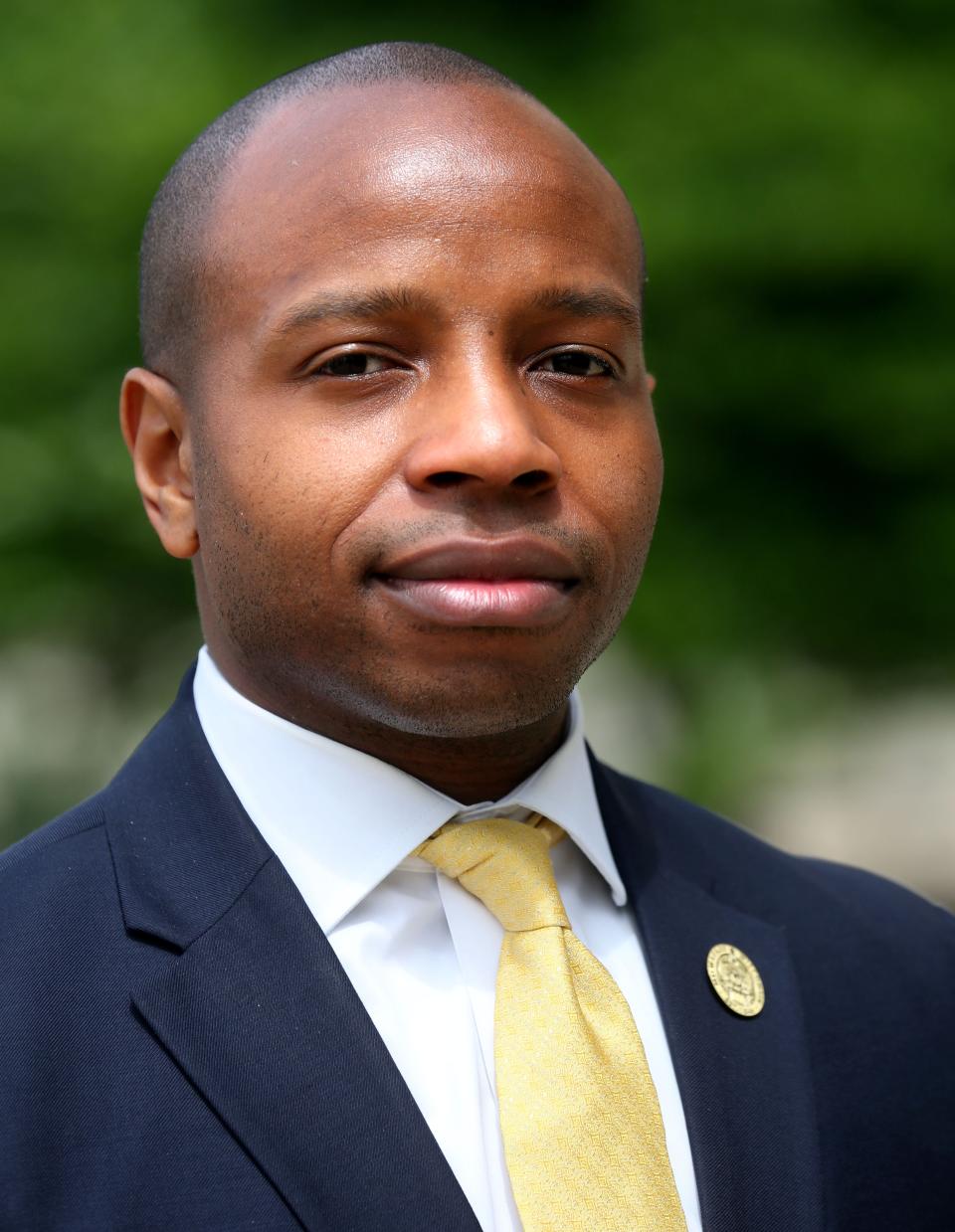
As Johnson has risen from Common Council president to acting mayor, he has laid out plans to respond to reckless driving and to the city's historic level of violence.
He called the violence in the city "unacceptable as well as unsustainable" in a recent news conference in which he detailed policy proposals to combat crime.
The plan focuses on law enforcement, prevention and "intervention with community healing," he said.
Measures included stabilizing the number of sworn police officers; community-oriented policing; additional training for police and firefighters on diversity, cultural sensitivity, use of force and mental illness; securing state and private funding for Crisis Assessment Response Team mental health services; and boosting funding to the city's Office of Violence Prevention.
He said he would seek additional funding from the state to maintain police staffing levels, which have decreased due to budget pressure in recent years.
The Police Department lost 60 officer positions in the 2020 budget, 120 in the 2021 budget and about two dozen in the 2022 budget. The cuts were made by not replacing officers who left.
As council president, Johnson led the effort in the fall to ensure council support for funding in 2022 for three police classes totaling 195 new recruits. The measure limited the decrease in the department's sworn strength, which the city expects to drop to 1,657 on average over the course of 2022.
Johnson also said he would like to put more than $5 million of the remaining $197 million in federal American Rescue Plan Act funds the city expects to receive toward the Office of Violence Prevention. Including the more than $3 million in ARPA funds the city allocated last year, the addition would allow the city to match the $8 million state allocation Gov. Tony Evers announced in October.
To decrease reckless driving, he has called for measures including narrowing roads and changing the structure of streets to prevent behaviors like the "Milwaukee slide," where drivers pass on the right shoulder to run red lights. He has also said it's necessary to better hold reckless drivers accountable and boost police enforcement.
In an interview, he told the Journal Sentinel there would be no single approach to addressing shootings, reckless driving or other violent behavior.
And he cited education, mental health services, support for violence prevention and enforcement as key components of a response.
"True public safety, holistic public safety also needs to involve the community," he said.
That includes restorative practices but also for people who have information about crimes to come forward, Johnson said.
He also tied public safety to the creation of family-supporting jobs, saying those opportunities would create stability in homes and neighborhoods.
And he brought the challenge to fund public safety back to the stagnant shared revenue coming to the city from the state and the state-imposed limits on local governments' ability to raise revenue. The city, he said, needs additional resources to fund not only police but also other services.
Former Ald. Bob Donovan
Donovan, a longtime conservative council member, said in his 20 years at City Hall he saw ensuring citizens' safety as the top responsibility of local government.
The former chair of the Common Council's Public Safety and Health Committee said the city is facing a "public safety crisis."
"What we're dealing with here would appear to me an atmosphere of lawlessness that has engulfed a significant number of our neighborhoods across Milwaukee," he said.
He said the decreases in police officer positions had been detrimental and an appropriate number of officers was necessary to effectively, efficiently and fairly police the city. While he did not know exactly how many sworn members he'd like, he estimated that figure would be around 2,000.
To pay for such an increase, Donovan planned to work with the state to get additional shared revenue or other revenue-generating options, consider measures such as a 911 surcharge and look for ways to save city dollars. The costs cannot fall solely on city taxpayers, he said.
He called for increasing the number of detectives and said he would like to see the implementation of juvenile detention facilities patterned after boarding schools.
Donovan also advocated for community policing, especially putting officers on foot or bicycle patrol to build trust with residents. That approach is important to ensure the officer is not seen as "some invading, occupying force" but rather as a "guardian of safety for that neighborhood," he said.
And he highlighted a 2016 public safety plan he drafted when he was on the council, saying it included approaches he felt the city needed to take today as well.
The plan called for improving police-community relations, significantly increasing law enforcement personnel and emphasizing traffic enforcement to reduce reckless driving.
Some of the recommendations were within the city's purview while others were in the control of Milwaukee County or the state. For instance, it called on the county to institute so-called boot camps for at-risk young people and reduce the use of electronic monitoring in favor of keeping more people in custody.
The plan was developed through an effort led by Donovan's council committee that brought together law enforcement, corrections officials, prosecutors, judges and youth advocates for a series of special meetings. It was a response to concerns about an increase in crime.
However, the plan also drew condemnation from community members opposed to increases in police, the so-called boot camps and more.
Donovan said he believed the "nuts and bolts" of the plan remained relevant six years after its publication and the national reckoning on race and policing following the murder of George Floyd by a Minneapolis police officer in 2020. Still, he said he'd be open to updates.
"Having said that, I believe the majority of Milwaukeeans are fed up with precisely what's happened to safety in Milwaukee, and they see it on a daily basis with the reckless driving," he said.
As for how to respond to reckless driving, he said the city needed to send a strong message that it would not be tolerated. Any reckless driver should be arrested and, if necessary, their vehicle towed and impounded, he said.
Donovan ran for mayor in 2016, losing to Barrett, the incumbent, 70% to 30%.
Business owner Michael Sampson
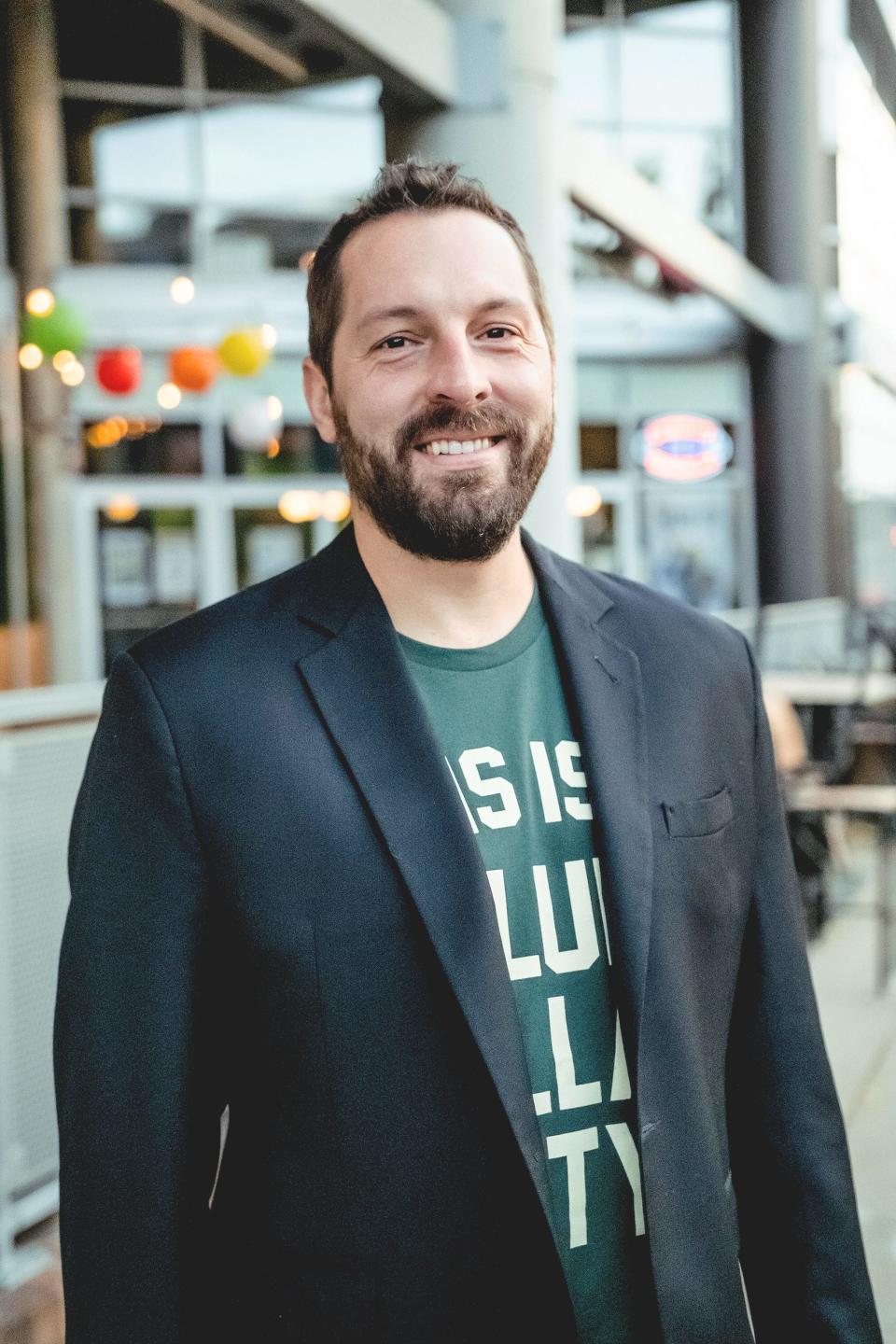
Sampson, a newcomer to city politics, owns Swarmm Events.
He listed reckless driving as a top issue for the city.
Sampson called for red-light cameras, pulling over drivers without license plates, implementing curb bump-outs and designated bicycle lanes. He also said he'd like to see the Milwaukee County Sheriff's Department get more involved in enforcement.
As for how to address homicides, he said it was necessary to rebuild community trust in police.
He said when he was a child he was excited to see the police because he knew they carried baseball cards. He wondered if the Milwaukee Bucks could make basketball cards for police officers to distribute to the city's children.
The Bucks and Daktronics, which makes trading cards and scoreboards, donated 10,000 packages of sports cards for police to hand out in 2017.
Sampson thought a gun buyback program could also work, in addition to potentially more youth programming.
He said he did not think the city could afford to lose any more police officers but that there are potentially situations, for instance, to send a social worker instead of a police officer.
Milwaukee County Sheriff Earnell Lucas
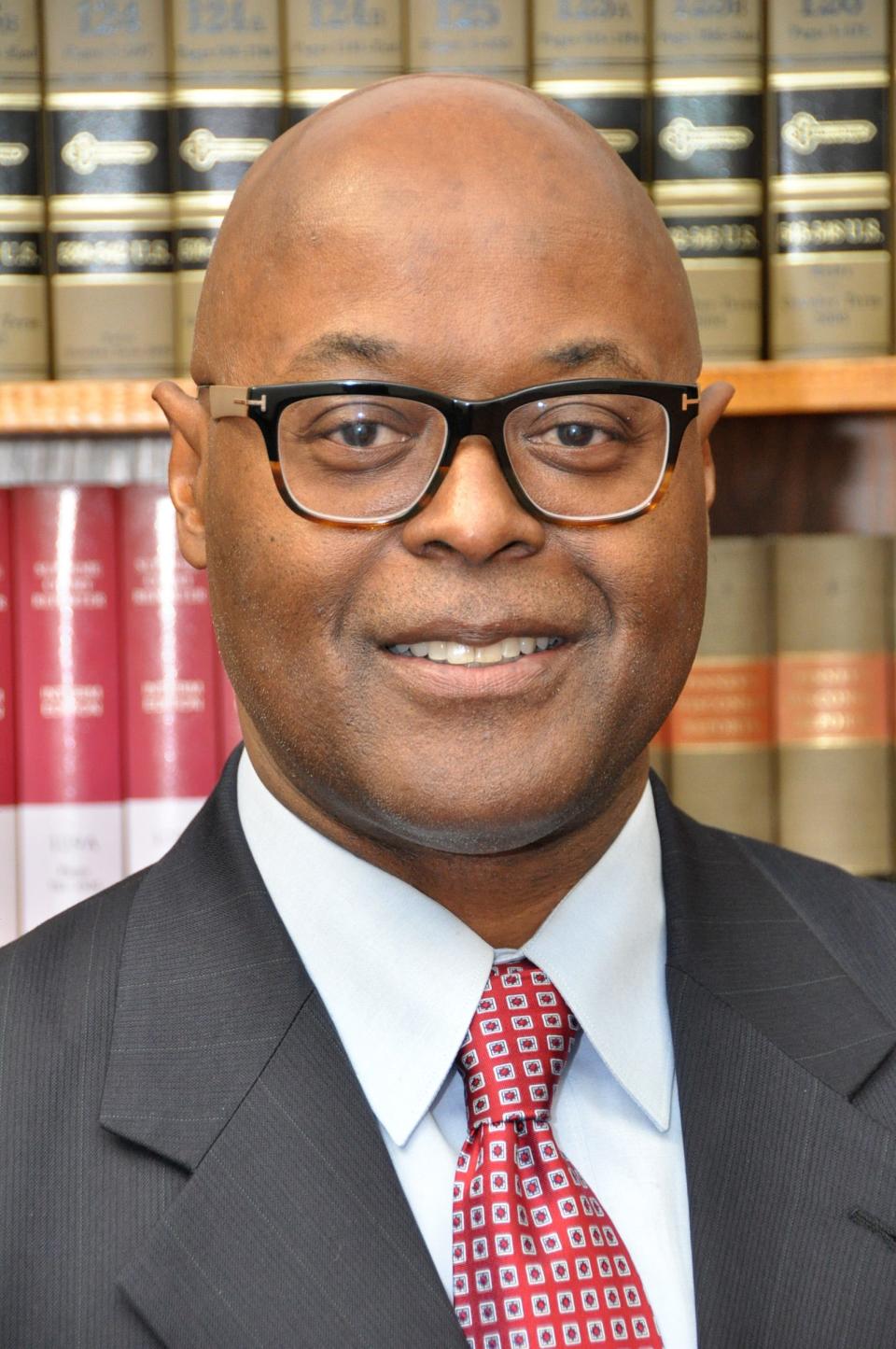
Lucas said public safety was the No. 1 issue facing the city and the next mayor.
"We have got to solve the crime and violence problems here in the city of Milwaukee and at the same time we have got to be able to address the reimagining of law enforcement here in the city that people have asked for," said Lucas, who won the race for sheriff in 2018.
He previously worked as a Major League Baseball security official and served more than two decades with the Milwaukee Police Department.
He said reckless driving could be addressed through education for students and adults, engineering of the roads, enforcement and technological changes by car manufacturers to address speeding and thefts.
Lucas said it was too early to tell what impact city leaders' allocation of $7.15 million in federal ARPA funds was making on reckless driving. Last year the city allocated $1.15 million for Police Department traffic enforcement and $6 million for the Department of Public Works to improve traffic safety.
Regarding homicides, Lucas said he would want police to focus on solving those crimes and that it would be necessary to increase the number of detectives.
He also said it is not on the Police Department alone to solve crimes and that it was necessary to partner with residents, faith organizations and others.
The mayor's job is to inform the public of the challenges in the community and make sure various groups are working together, he said.
"Part of a crime strategy is crime prevention, and some of the things that people can do here in our city can help lead to a reduction in crime by, again, making them aware of their surroundings, making them aware of what things are going on and then engaging them in strategies to help them solve issues in their neighborhoods as well as throughout the city," he said.
He said he would look for ways to fund the Police Department but also other city agencies, whether through grant funding, city funds, private foundations or other means.
Ald. Marina Dimitrijevic

Dimitrijevic said city leaders needed to take immediate action to address violence in Milwaukee.
"As a mother, I am just completely appalled and outraged by the increase in violence in our city," she said. "The homicides, the gun violence, reckless driving — it's just terrible. It's unacceptable."
She said she saw a "great role" for the mayor in the city's Fire and Police Commission, an independent body that has oversight responsibility of the police and fire departments.
Commissioners are appointed by the mayor and confirmed by the Common Council.
Dimitrijevic, who is in her first term on the council after serving on the County Board, said she believed in community policing to build trust between police and residents.
She also said that investing in the Office of Violence Prevention and implementing the Blueprint for Peace will help the city end "cycles of trauma and recidivism and try to prevent violence."
"The best investment in my opinion when we have so few resources is in prevention, so we can prevent some of these crimes from happening and take guns off the street and work with families to reduce the cycle of trauma," she said.
She would like to see additional dollars for the Office of Violence Prevention spent on initiatives such as 414LIFE, a team trained to interrupt violence and support people hurt by gunfire and their families.
Investing in prevention is that much more important given the cost of policing, she said. (The Police Department's 2022 budget is $280.4 million — about 46% of the city's $610.9 million general city purposes budget.)
Dimitrijevic also raised concerns about cuts to the Fire Department and challenges with ambulance services, saying she would want to look at public safety issues as a whole.
Regarding homicides, she said there are too many guns on the street and cited work to hand out gun locks. But she also said putting ARPA funds in the Office of Violence Prevention can make a difference.
To respond to reckless driving, she said she was in favor of Vision Zero, a strategy to end traffic fatalities and serious injuries through approaches including data analysis, community engagement and managing speeds.
She also said she supports free driver education in public schools, making it easier for residents to get speed bumps installed to slow drivers in their neighborhoods and helping people who are driving without a proper license get their records up to date.
State Sen. Lena Taylor
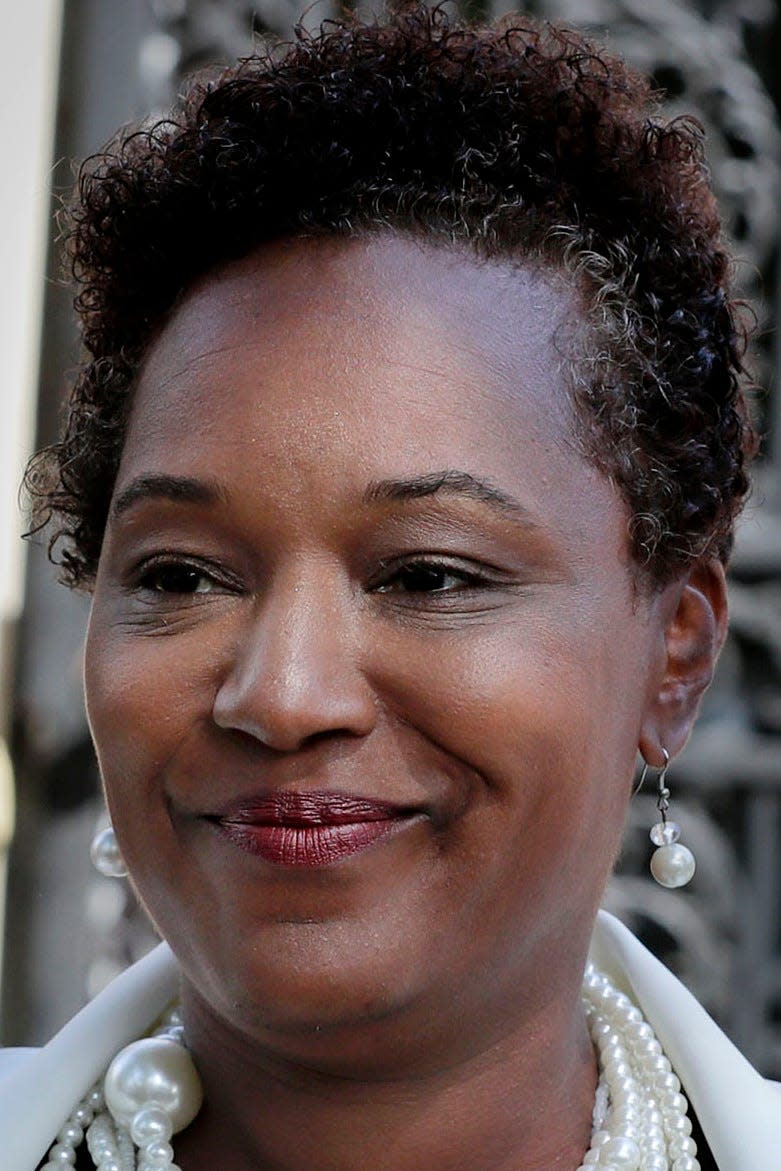
Taylor said she sees public safety from a broad perspective that also includes the increase in domestic violence during the pandemic, human trafficking, access to COVID-19 testing and tracing, and issues such as lead poisoning.
"I think public safety is multiple things, and I think that they’re interconnected," she said.
She said more collaborations will lead to more efficient use of dollars and services, in addition to allowing a better exchange of ideas.
She also advocated for creating "hubs of opportunity" that would help residents get on the path to employment, entrepreneurship and homeownership.
And Taylor contended that the collaborations and "hub model" she's advocating would not take as long as many believe, saying existing efforts can be replicated and expanded.
She said she was already working on both initiatives.
Regarding reckless driving, she said she did not see red light cameras as a solution because of a number of challenges they present with identifying the driver.
Instead, she said, the city should pressure companies whose vehicles are being stolen most often to make changes such as adding kill switches.
Other measures she called for included changing road design, traffic enforcement and driver education in schools. And, she said, those who receive tickets for reckless driving should have to take driving classes.
For people who cannot be redirected to non-dangerous activities, Taylor called for more strongly enforcing existing laws.
Ultimately, though, she said it was about helping people see other life paths.
"In the end, we've got to change minds. We cannot legislate, we cannot incarcerate, we can't speed bump our way through many of these issues," she said.
Regarding homicides, she pointed to the need to heal and said there is a mental health crisis in the city.
"We’ve got to give people other tools," she said. "We need to help people be more literate in relationships, in their role in community, in how to handle trauma, how to handle what is taking people from zero to 1,000 in moments."
She said the Blueprint for Peace offers key components the city needs to help people heal and connect to services.
Addressing homicides will take collaboration and a city that is broadly inclusive, she said.
Taylor anticipated seeking resources to implement elements of the Blueprint for Peace from the health industry but also for law enforcement, workforce development, entrepreneurial efforts and more.
Taylor challenged Barrett in the 2020 mayoral race, losing with 37% of the vote to Barrett's 63%.
Ieshuh Griffin
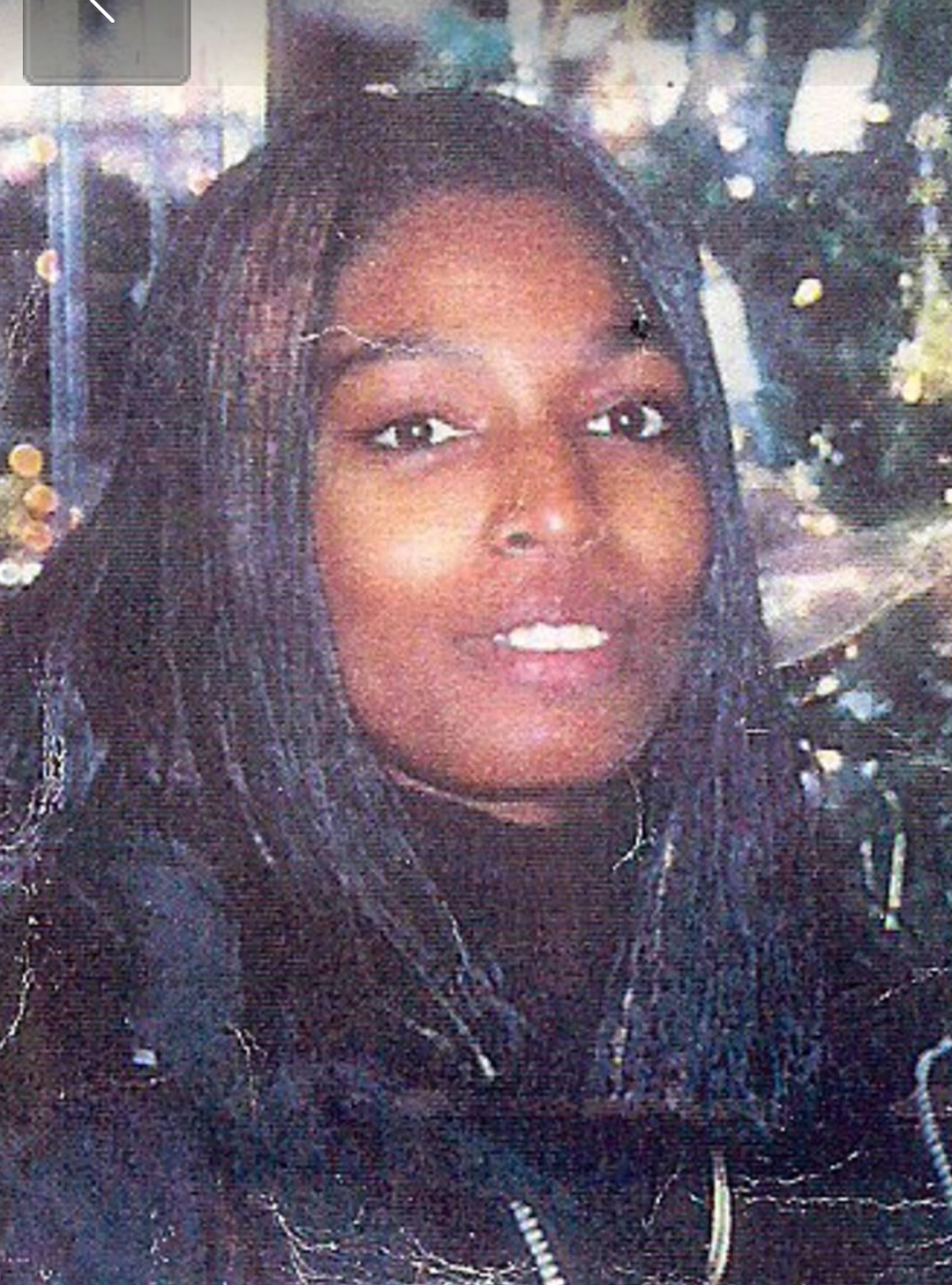
Griffin, an activist, is running under the slogan "The Poor People's Piece of the Pie Campaign."
She said citizens and police should be able to feel safe in the city and not have to fear being victimized.
"I think it's a joint effort as far as public safety," she said, calling for regular meetings between police and community members.
She said while homicides tend to capture the most attention, she would also want to look at the causes of other forms of gun violence such as suicides. All gun violence needs a solution, she said.
Community involvement and additional resources and services that address residents' "stress and desperation" are needed, she said.
She also said when she was a child she did not fear the police and that it is necessary to have a better dialogue between police and the community.
Griffin also connected reckless driving to car theft, saying stealing a car is often a crime of opportunity. Understanding why it's happening will take a lot of communication, including with those involved in reckless driving, she said.
Tell us what's important to you
The Journal Sentinel would like to hear what readers see as the biggest issues the next mayor will need to tackle. Email adirr@jrn.com or call 414-224-2383 to share your thoughts and questions for the candidates.
Note regarding the form below: Some users of our app tell us they cannot open the form. If that's the case, please try this link instead.)
Contact Alison Dirr at 414-224-2383 or adirr@jrn.com. Follow her on Twitter @AlisonDirr.
Our subscribers make this reporting possible. Please consider supporting local journalism by subscribing to the Journal Sentinel at jsonline.com/deal.
DOWNLOAD THE APP: Get the latest news, sports and more
This article originally appeared on Milwaukee Journal Sentinel: Here's how Milwaukee's mayoral candidates would approach public safety

